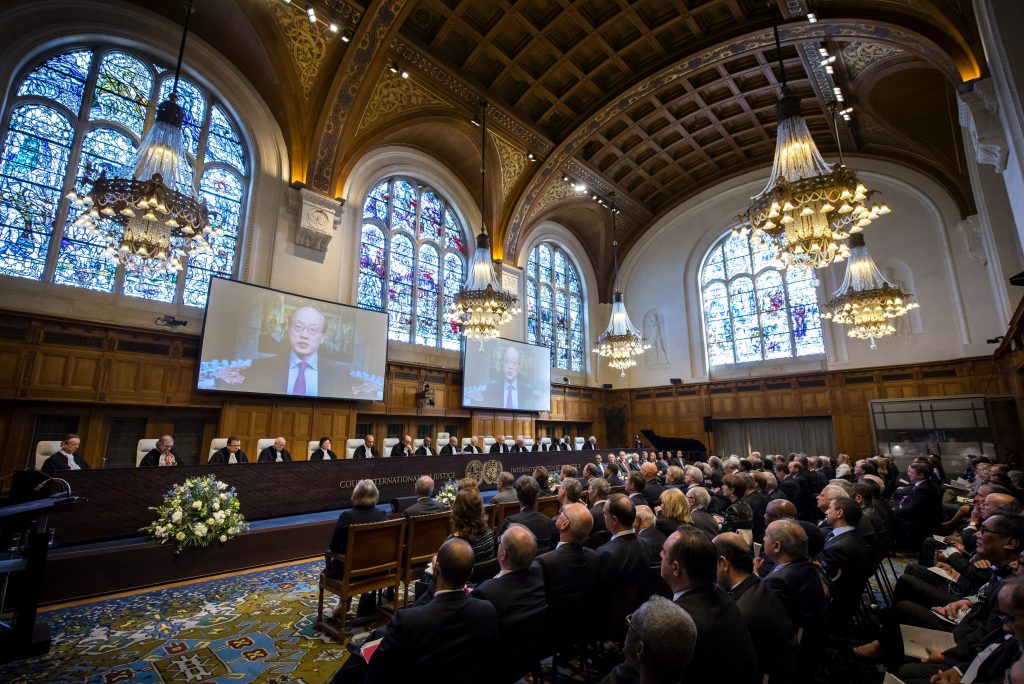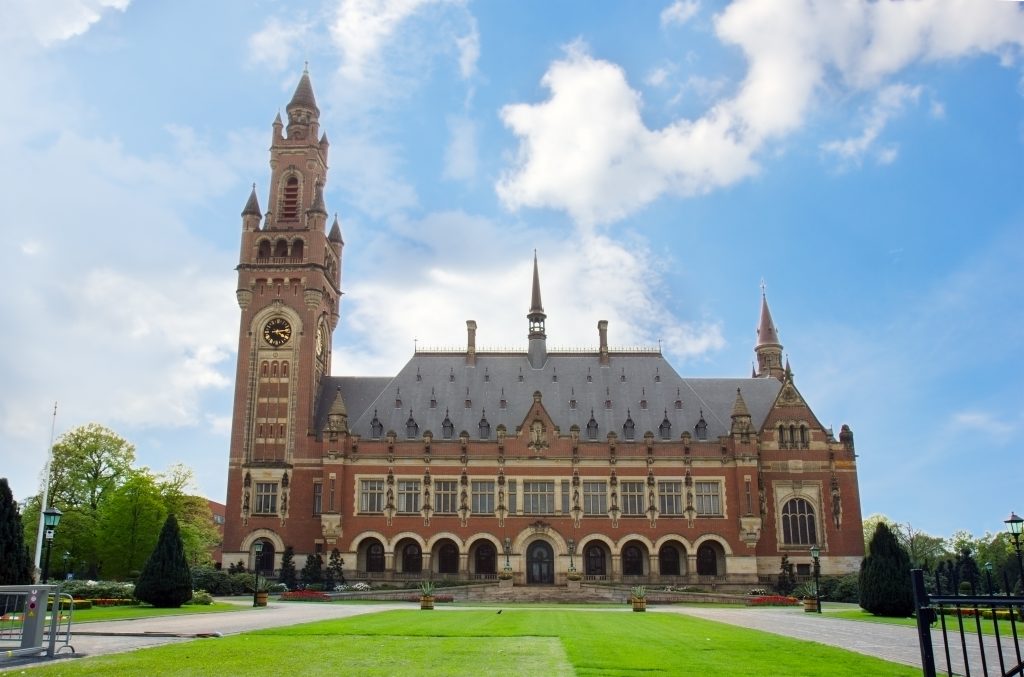Rozhyar Mohammed
Tishk University
International Relations and Diplomacy department
3rd Grade
A Brief History of ICJ
International Court of Justice was established on 16th June 1945. It is the main court of United Nations, which includes all the UN member states. The ICJ has replaced the previous international court of Hague.
The conflicts and disputes between states was the main reason behind the establishment of ICJ. It followed the PCA (Permanent Court of Arbitration) which was the first permanent institution established for the purpose of settling international disputes.
Permanent International Court of Justice issued more than 30 decisions during 1921–1939 and it put forward advisory opinions on international legal issues. In 1945 the International Court of Justice replaced it, where the first court session was opened in 1946.
Members of the Court
United Nations General Assembly and Security Council separately every three years are holding elections for the International Court of Justice, to elect one-third of the 15 judges’ seats in the court and they serve a 9-year term. The judges do not represent the governments of their original countries, but they work based on international laws.
Duty of ICJ
ICJ’s main task is to settle the conflicts and disputes between nations and states around the world. Disputed cases are accepted and worked on by ICJ if they meet the conditions of ICJ to be taken as an international case. Conditions have been written down and approved by United Nations Security Council. Due to the fact that the International Court cannot subject a state to compliance before the judicial authority without its consent, a state either expresses consent during the time of compliance with the trial, or prior to the approval of certain cases by the judicial court authority, or according to the provisions of the agreement related to matters of dispute.
The Court’s Latest Changes
Articles 22, 23, 29, 76 and 79 as new rules, have been implicated by the 2019 amendments. Concerning Articles 22, 23, and 29, all the three were made gender-neutral in their language and the requirement that a candidate for the post of Registrar should be proposed by a Member of the Court has been eliminated and replace with an open and transparent appointment process. This has reflected in the procedure of appointment of the present Registrar, Philippe Gautier, earlier this year, as well as in the latest application announcement for the post of Deputy Registrar.
Article 76 concerns provisional measures. It has been amended to add the words ‘or proprio motu’ to the first paragraph but remains otherwise unchanged. This amendment clarifies that modifications to provisional measures orders may arise on the application of a party or at the instigation of the Court. Given that two reasonably recent cases – Questions relating to the Seizure and Detention of Certain Documents and Data and Certain Activities Carried Out by Nicaragua in the Border Area – raised the question of modification of provisional measures orders, this clarification is welcome. Indeed, it is something of a return to the past insofar as Article 61 of the 1946 and Article 66 of the 1972 Rules had left it open to the Court to modify or revoke interim relief proprio motu.
Article 79, concerning preliminary objections, has received the most radical overhaul, at least in terms of appearance. What was once a single Article, is now divided into four parts and a new procedure adopted. This is not the first time the Court has grappled with the most appropriate procedure for preliminary objections. The first set of PCIJ Rules 1922 contained no procedure for preliminary objections. It was included for the first time in the 1926 revision; the issue was raised in Mavrommatis and Certain German Interests in Polish Upper Silesia.
The creation of Articles 79bis and 79ter may seem superfluous, merely a matter of appearance, but it incorporates a change of substance. The emphasis is now placed on the primary role of the Court in deciding on whether questions of jurisdiction and admissibility should be determined separately. This adopts a more explicit case management approach, as the decision will be taken following the parties first conference with the President.
Articles 79, 79bis and 79ter now also draw a distinction between preliminary questions and preliminary objections; questions are those raised by the Court in 79, objections are those raised by the party in 79bis. what this means in practice is not clear; it may well not have any impact beyond clarifying by the use of clear language which procedure is being acted under.
Sources
- Mawdoo3 Website
- Ejil: Talk Website





